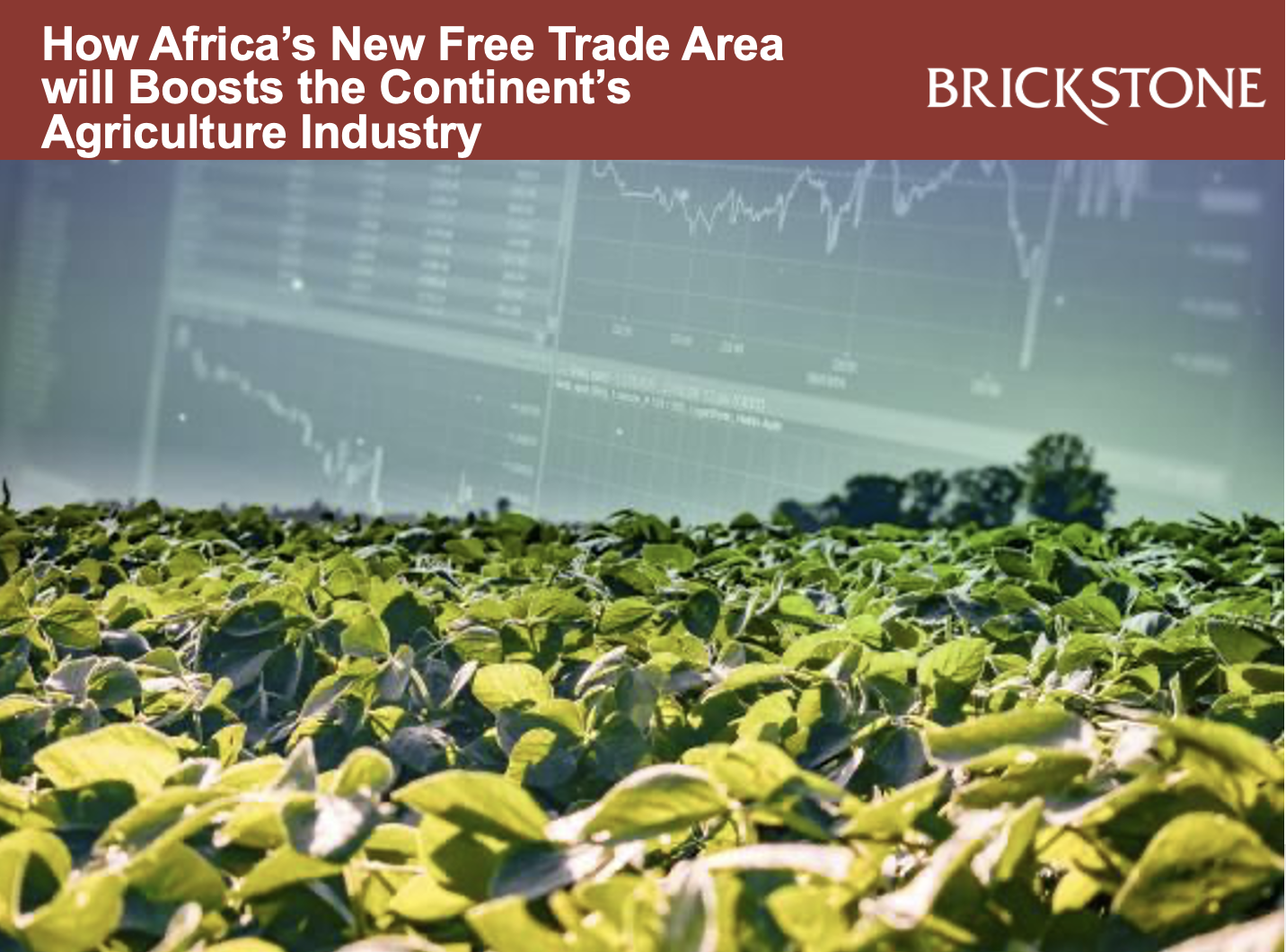How Africa’s New Free Trade Area will Boosts the Continent’s Agriculture Industry
According to the World Economic Forum, agriculture accounts for roughly one-third of the African continent’s GDP, provides a livelihood for 50% of the population and feeds hundreds of millions of people on the continent and beyond every day.
The key role that agriculture plays in the continent’s economy is only set to grow in strength and size under the African Continental Free Trade Area (AfCFTA) agreement, struck in February 2021 and now in full swing.
This article by Brickstone Africa reviews WeForum’s publication on how Africa’s New Free Trade Area will boost the continent’s agriculture industry.
AfCFTA: A New Era For African Agriculture
According to the World Economic Forum’s Insight Report on the deal — AfCFTA: A New Era for Global Business and Investment in Africa — the free trade area, one of the world’s largest by number of people and economic size, is projected to host 1.7 billion people and oversee $6.7 trillion in consumer and business spending by 2030.
Agriculture makes up 35% of Africa’s GDP and employs about half of its people, but the continent still imports billions of dollars of agri-product every year.
The deal will be transformative for many of Africa’s industries, but given agriculture’s already central role in the continent’s economy, and its huge potential for growth, agriculture will be a prime beneficiary.
According to the Forum’s report, agriculture has exceptional potential for increasing intra-African trade, meeting local demand, accelerating GDP growth, creating new jobs and improving inclusivity due to upstream and downstream linkages.
It will increase value addition, meet new local demand and bring smallholder farmers — who are responsible for 80% of Africa’s food production — into wider supply chains.
Opportunities abound in the AfCFTA for new investment in agro-processing, in particular.
Agro-processing and Africa’s Agricultural Ascension
Agro-processing has important implications for African food security, job creation and poverty reduction. Boosting it adds value to an already competitive agriculture sector.
Under the African Continental Free Trade Area (AfCFTA) agreement, Africa’s need to import so much will be reduced, and domestic processing capacity boosted massively.
Countries across Africa have already increased their focus on agro-processing in response to the food insecurity and price spikes caused by trade disruptions from global shocks — not least the Russian invasion of Ukraine — and because of the potential to transition economies away from the long-established but suboptimal model of exportation of raw materials.
With improved capacity to process their own agricultural goods — whether that’s grain, fertiliser or anything else — African countries can exploit the huge advantage many of them have in their established and sizable agricultural sectors to build wealth and create new jobs and opportunities at home.
Scaling agro-processing has positive inclusivity impacts, too. Women make up 70% of employment in the overall agricultural sector and most of the domestic agro-processing workforce is female. A boost to African agriculture is a boost for the continent’s women.
New Investment, New Opportunities
This growth in agriculture and agro-processing will drive new investment from abroad, from within the continent and outside of it.
The common market introduced under the AfCFTA can leverage regional differences in the strengths and competitiveness of intra-African diversity in their food value chains, specialisations and key outputs.
Increased intra-African trade through the AfCFTA will help reduce dependency on foreign agricultural inputs. Currently, the continent imports about $50 billion worth of agricultural products per year.
By 2030, intra-African agricultural trade is projected to increase by 574% if import tariffs are eliminated; a huge victory for a continent historically hobbled by unnecessary reliance on outside economies.
African-owned and run businesses will benefit from this intra-continental trade boost. The fertiliser industry, for example, is expected to boom. New agricultural activity is expected to require an 800% increase in fertiliser application for main nutrients. Irrigation is expected to benefit from $65 million in new investment, while more than $8 billion worth of investment in storage will also be required.
All of this, under the AfCFTA, can be fulfilled tariff-free by African enterprises.
Read more here.






